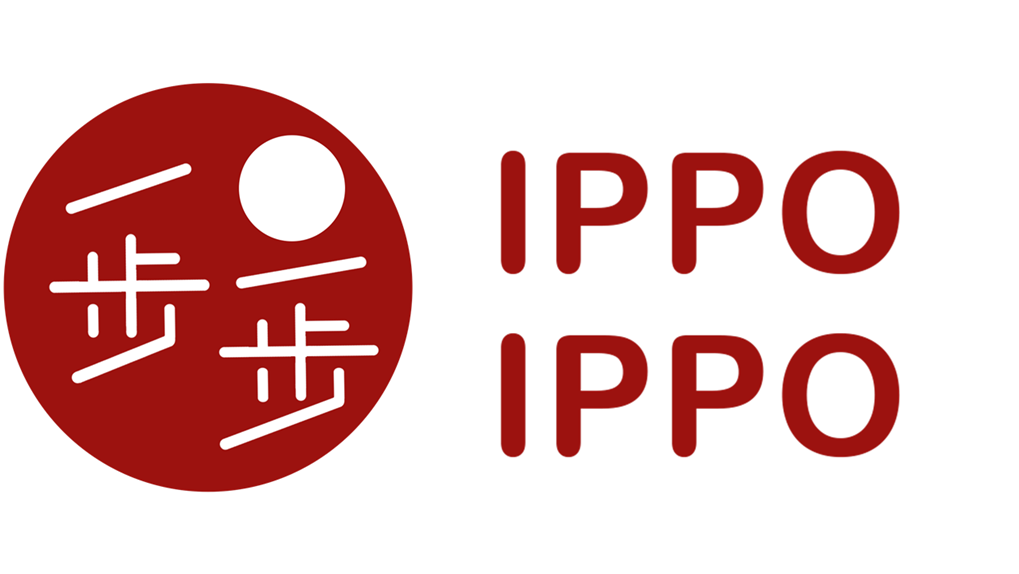Posted: 13th July 2022
Hello and welcome to the Ippo Ippo Japanese Word of the Week!
This week's word is...
ぼちぼち
Bochi bochi
What does it mean?
To find out the meaning of ぼちぼち (bochi bochi) and how to use it, choose one of the following options.
Option 1 (more detail - click here to scroll): read the following section, which introduces an example of ぼちぼち (bochi bochi) in Kansai-ben (Kansai dialect). Learn a little extra about how ぼちぼち (bochi bochi) is used and see if you can work out its meaning yourself!
Option 2 (cut to the chase - click here to scroll): skip to the section where I introduce the meaning and some handy examples of how to use ぼちぼち (bochi bochi) in daily life.
ぼちぼち (bochi bochi) & Kansai Dialect: Some Quick Background
ぼちぼち (bochi bochi) appears to originally be from Kansai dialect, meaning it's used most commonly in areas such as Osaka, Kyoto and Kobe. However, there are many words that come from Kansai that are now used and understood widely across Japan - ぼちぼち (bochi bochi) being one of them!
One typical example of ぼちぼち (bochi bochi) used in Kansai dialect is between tradespeople (e.g. shopkeepers). As business is traditionally big part of life especially in big cities like Osaka, you might hear a conversation starting like this (standard Japanese and English below):
- Tradesperson A:儲かりまっか?(Mōkarimakka?)
- Tradesperson B:ぼちぼちでんな。(Bochi bochi denna.)
In standard Japanese:
- Tradesperson A:商売はうまくいっていますか?(Shōbai wa umaku itteimasu ka?)
- Tradesperson B:普通です。(Futsuu desu.)
And in English:
- Tradesperson A:How's business / is trade going well?
- Tradesperson B:It's not bad / it's normal.
Think you know what ぼちぼち (bochi bochi) means? Let's check...
ぼちぼち (bochi bochi): Meaning & Example Uses
As you may have guessed from the above example, ぼちぼち (bochi bochi) means "not bad" or "so-so". Personally I would say this sits more on the positive side of "not bad", but as with most things, a lot will depend on tone and context.
If you've already learnt a bit of Japanese, you may be familiar with this kind of exchange:
- A:元気ですか?(Genki desu ka? - Are you well? / How are you?)
- B:まあまあです。(Maa maa desu - I'm alright)
Or more casually:
- A:元気?(Genki? - You alright? / How're you?)
- B:うん、まあまあ。(Un, maa maa - Yeah, I'm okay / Yeah, not bad)
If you're getting a bit tired of まあまあ (maa maa), ぼちぼち (bochi bochi) is here to save the day! Here are some examples of how you can use it.
Example 1
- A:最近仕事はどう? (Saikin shigoto wa dō? - How's work recently?)
- B:うーん、ぼちぼちだね。(Unn, bochi bochi da ne - Umm, not bad I guess.)
More formally, you could change B's response to ぼちぼちですね (bochi bochi desu ne).
Example 2
- A:最近どう? (Saikin dō? - How have things been lately? / How have you been?)
- B:ぼちぼちやってる*。(Bochi bochi yatteru - Not bad / I've been doing okay)
*やってる comes from the verb やる, meaning to do. This is often used as a more casual version of する (suru).
More formally, you could change B's response to ぼちぼちやっています (bochi bochi yatteimasu).
Example 3
Returning to Kansai dialect, another option is:
- A:最近どう? (Saikin dō? - How have things been lately? / How have you been?)
- B:ぼちぼちや*なあ。(Bochi bochi ya naa - Not bad)
*や (ya) is often used instead of だ (da) in Kansai dialect. だ (da) is the short form version of です (desu).
Source & More Info
-
「ぼちぼち」とは?意味や使い方をご紹介(コトバの意味辞典)- source in Japanese
You've reached the end of this post! I hope you enjoyed it.
For updates on posts like this sent straight to your inbox, sign up to my newsletter (sent no more than once a month):

Support Me on Ko-fi
If you've enjoyed this post and would like to see more like it in future, please consider sending a donation - however small! - via Ko-fi. I don't include any affiliated links or ads on my blog, so every little helps!
Please donate via the portal below or by going directly to the Ippo Ippo Japanese Ko-fi page.







